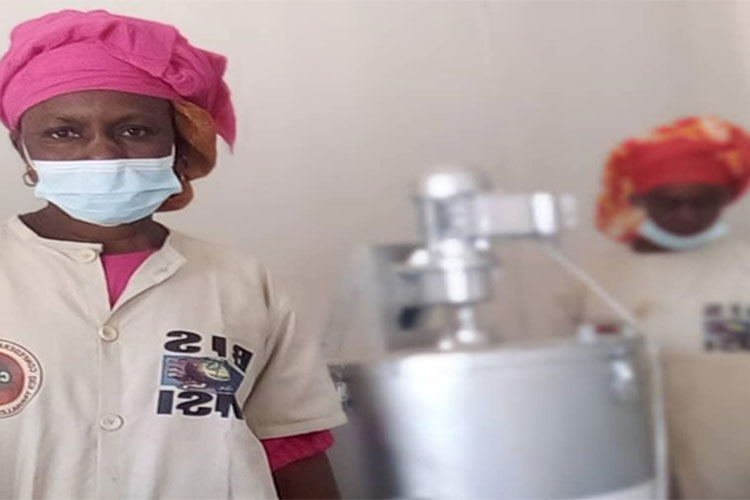The Confédération Nationale des Travailleurs du Sénégal (CNTS) is working on various sustainable development projects in partnership with trade unions and civil society organisations from other countries, with a view to creating decent work and economic activity decoupled from environmental degradation, as advocated in Sustainable Development Goal 8 (SDG 8) and the New Social Contract called for by the ITUC.
In a bid to promote human activity that has minimal impact on the environment, the CNTS worked on the Freddas project in collaboration with the Italian NGO Green Cross. The project, which ran from 2017 to 2019, resulted in the development of a solar-powered hydro-agricultural perimeter. Covering an area of 60 hectares, straddling two villages, the project continues to provide sustainable benefits to over 240 households. In addition to contributing to the sustainable development and preservation of the natural resources of the Senegal River Valley, the project also assists in the fight against rural exodus, clandestine migration and poverty.
In the framework of creating a sustainable, inclusive society with decent work for all, the CNTS has been working since 2005, with the MSI [the solidarity support organisation of the Belgian union confederation CGSLB] on the formalisation of workers in the informal economy. Thanks to this programme, the CNTS has been able to conduct awareness raising among 50,000 workers and to organise 83 groups in 25 sectors of activity in all 14 regions of the country. Recently, as part of this project, the CNTS equipped women in the informal sector in the Matam region with the materials needed to empower them in their work.
Decent work and incomes that enable workers to live with dignity are fundamental to ending extreme poverty. With this in mind, the CNTS has been involved in sustainable job creation projects such as the flake ice factory project in the city of Ziguinchor. The closure of the city’s main fish processing plant, SOSECHAL, marked the start of very hard times for the hundreds of workers at the plant and the thousands of people who depended entirely on its activity, such as the fishermen who needed ice to preserve their catch. To counter this, the CNTS and the workers at the factory established an Economic Interest Group to take it over, with the support of the ISCOS, which is the solidarity support organisation of the Italian confederation of workers’ unions, the CISL. Thanks to this project, the workers also managed to solve the shortage of flake ice and to save the jobs of the fishermen in the area, allowing them to stay longer at sea and to fish more, while preserving their catch.
The CNTS is continuing to strive to improve the working and living conditions of people in general and workers in particular. For the CNTS, it is clear that international cooperation is crucial to achieving this objective and that the Sustainable Development Goals set out the foundations on which we can build to reduce poverty in the world.


